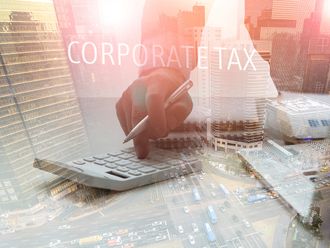Dubai: Analysts have predicted a robust economic recovery for the six Gulf Cooperation Council (GCC) countries in 2010 and 2011 on the back of improving oil demand and rising crude prices.
The Dubai Chamber of Commerce and Industry expects GCC gross domestic product (GDP) to increase by 4 per cent this year and accelerate to 4.6 per cent in 2011, compared to a 1 per cent rise in 2009.
The UAE's GDP will increase by between 3 and 3.5 per cent next year, Sultan Bin Saeed Al Mansouri, Minister of Economy, said. "The total GDP of the UAE is expected to exceed Dh1 trillion by the end of this year, recording a real growth of 2.25 per cent in 2010," he said this month.
Dubai's growth too will be higher than expected, according to Sami Dhaen Al Qamzi, Director-General of the emirate's Department of Economic Development. "Traditional sectors such as hospitality, aviation, retail and logistics will lead the rise," he said.
As a result of the rebound in oil prices and oil production levels, the fiscal and external balances of Gulf nations are expected to improve significantly. GCC nations will post a current account surplus of 11.8 per cent of GDP this year and 12.3 per cent of GDP in 2011, the Dubai Chamber said.
The International Monetary Fund has forecast average crude prices of $75.3 for 2010 and $77.5 for 2011.
According to the Dubai Chamber, a higher current account surplus will result in large build-up of net foreign assets of about 110 per cent of GDP in 2010 and 113 per cent in 2011.
Marios Maratheftis, head of research at Standard Chartered Bank, UAE, said: "Growth in the GCC in 2011 will be driven by hydrocarbons, infrastructure investment and private sector activity.
"While 2010 saw a slowdown in infrastructure spending in Qatar and Abu Dhabi, the momentum is likely to pick up again in the next three years, as several projects, including roads and railways, were delayed but not cancelled," he said.
Challenges ahead
Despite the positive outlook for the GCC economies, some downside risks remain, the Dubai Chamber said yesterday. Slow recovery of the global economy might reduce oil prices and consequently worsen the fiscal and the external balance.
Persistence of weak private sector demand and tight financial conditions might lead to an increase in corporate distress and loss of confidence. Continued slowdown in private credit growth might constrain further loan supply, it said.












